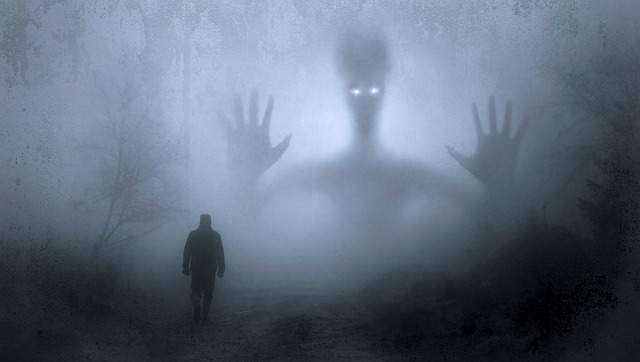The Dark Night of the Soul is a transformative experience that can lead to profound spiritual growth. It is a time of deep introspection, where the individual is forced to confront their own limitations and weaknesses. It is a time of shedding old beliefs and attachments and embracing a new way of being in the world. While the experience can be painful and challenging, it is ultimately a journey toward greater self-awareness and enlightenment.
Origins and Meaning
The phrase “dark night of the soul” has its origins in the writings of the Spanish mystic and poet St. John of the Cross in the 16th century. He used the phrase to describe a spiritual crisis that he himself had experienced, a time of intense suffering and doubt that he believed was necessary for spiritual growth.
In modern times, the phrase has taken on a broader meaning, referring to a period of intense emotional or spiritual turmoil, often characterized by feelings of loneliness, despair, and a sense of disconnection from the divine. This experience is often seen as a necessary step on the path to spiritual awakening or enlightenment.
The dark night of the soul is not a one-time event, but rather a process that can occur multiple times throughout a person’s life. It is often triggered by a major life transition, such as the loss of a loved one, a traumatic experience, or a spiritual crisis.
Symptoms and Characteristics
The Dark Night of the Soul is a period of intense spiritual and emotional turmoil that can last for months or even years. It is a time of deep questioning, confusion, and uncertainty, and it can be incredibly difficult to navigate. Here are some common symptoms and characteristics that people may experience during this time:
- Feelings of sadness, despair, and hopelessness
- Intense fear and anxiety
- Feelings of unworthiness or self-doubt
- Difficulty sleeping or insomnia
- Loss of interest in hobbies and activities
- Physical symptoms such as headaches, body aches, and nausea
- Increased sensitivity to light, sound, and other stimuli
- Difficulty concentrating or making decisions
- Intense mood swings and emotional instability
- Feelings of detachment or disconnection from the world around you
It’s important to note that not everyone will experience all of these symptoms, and some people may experience additional symptoms that are not listed here. Additionally, the severity and duration of these symptoms can vary widely from person to person.
One of the most challenging aspects of the Dark Night of the Soul is that it can be difficult to know when it will end. Some people may experience a sudden breakthrough or epiphany that marks the end of this period, while others may simply gradually emerge from it over time.
It’s also worth noting that while the Dark Night of the Soul can be incredibly difficult, it can also be a time of profound growth and transformation. Many people emerge from this period with a deeper understanding of themselves and the world around them, and a renewed sense of purpose and direction in life.
Famous Examples
The concept of the Dark Night of the Soul has been explored in various forms of art and literature. Here are a few famous examples:
- Lord of the Rings: Frodo and Sam have finally reached Mount Doom, and Frodo must decide to part with the precious Ring. This moment marks Frodo’s descent into the Dark Night of the Soul as he wrestles with the weight of his burden and the realization that his journey may not have a happy ending.
- The Catcher in the Rye: Holden Caulfield’s journey through the Dark Night of the Soul is a central theme of the novel. Struggling with feelings of alienation and disillusionment, Holden grapples with the harsh realities of the world around him and questions his place in it.
- The Shawshank Redemption: Andy Dufresne’s time in prison is a metaphorical Dark Night of the Soul. As he endures years of abuse and injustice, he must confront the darkest parts of himself and find a way to hold onto hope in the face of overwhelming despair.
These examples all demonstrate the power of the Dark Night of the Soul as a storytelling device. By putting characters through intense emotional struggles, authors and filmmakers can create deeply moving and thought-provoking narratives that resonate with audiences long after the story has ended.
Spiritual and Psychological Perspectives
Dark night of the soul can be viewed from both spiritual and psychological perspectives. From a spiritual perspective, it is a transformative process that leads to a deeper connection with the divine. It is a time of purification and preparation for a new phase of spiritual growth. This process is often accompanied by feelings of emptiness, despair, and a sense of being lost.
On the other hand, from a psychological perspective, dark night of the soul can be seen as a period of intense inner turmoil and crisis. It is a time when one’s beliefs, values, and sense of identity are challenged. It can be a time of depression, anxiety, and existential angst. However, it is also a time of great potential for personal growth and transformation.
Both perspectives recognize that dark night of the soul is a difficult and painful process. However, it is also a time of great potential for growth and transformation. It is a time when we are forced to confront our deepest fears, doubts, and insecurities. It is a time of self-reflection and self-discovery.
Ultimately, whether viewed from a spiritual or psychological perspective, dark night of the soul is a time of transition. It is a time of letting go of the old and embracing the new. It is a time of surrendering to the unknown and trusting in the process. It is a time of transformation and rebirth.
Coping Strategies
Experiencing a dark night of the soul can be a challenging and overwhelming time. Here are some coping strategies that may help you navigate this difficult period:
- Surrender: Surrendering to the process and accepting that you are going through a difficult time can be a powerful coping mechanism. Instead of fighting against your emotions, try to observe them without judgement and allow yourself to feel what you are feeling.
- Practice Presence: Focusing on the present moment can help you stay grounded and reduce anxiety. Mindfulness practices such as meditation, deep breathing, and yoga can be helpful tools for staying present.
- Ask Questions: Asking yourself questions such as “What can I learn from this experience?” or “What do I need to let go of?” can help you gain insight and clarity during this time.
- Seek Support: Talking to a trusted friend, family member, or mental health professional can provide much-needed support and validation during a dark night of the soul. Don’t be afraid to reach out for help.
- Engage in Self-Care: Taking care of yourself during this time is crucial. This can include getting enough sleep, eating well, exercising, and engaging in activities that bring you joy.
- Follow the Crumb Trail: Following your intuition and taking small steps towards what feels right can help you move through the dark night of the soul. Trust that you will find your way through this difficult time.
Remember, everyone’s experience with the dark night of the soul is unique, and there is no one “right” way to cope. Be gentle with yourself and trust that you will find your way through this challenging time.
Conclusion
The Dark Night of the Soul is a spiritual journey that many people experience. It is a time of spiritual darkness, confusion, and despair. It is a time when one feels abandoned by God and feels a deep sense of loneliness. However, this journey is not one to be feared. It is a journey that can lead to a deeper relationship with God and a greater understanding of oneself.
St. John of the Cross’s book, The Dark Night of the Soul, provides a roadmap for this journey. It is a guidebook for those who are experiencing this spiritual darkness and can help them navigate through it. The book emphasizes the importance of surrendering oneself to God and trusting in His plan. It also emphasizes the importance of detachment from worldly possessions and desires.
The Dark Night of the Soul is not an easy journey. It requires a great deal of courage, faith, and perseverance. However, those who embark on this journey will come out on the other side transformed. They will have a deeper understanding of themselves and a greater appreciation for the love of God.

